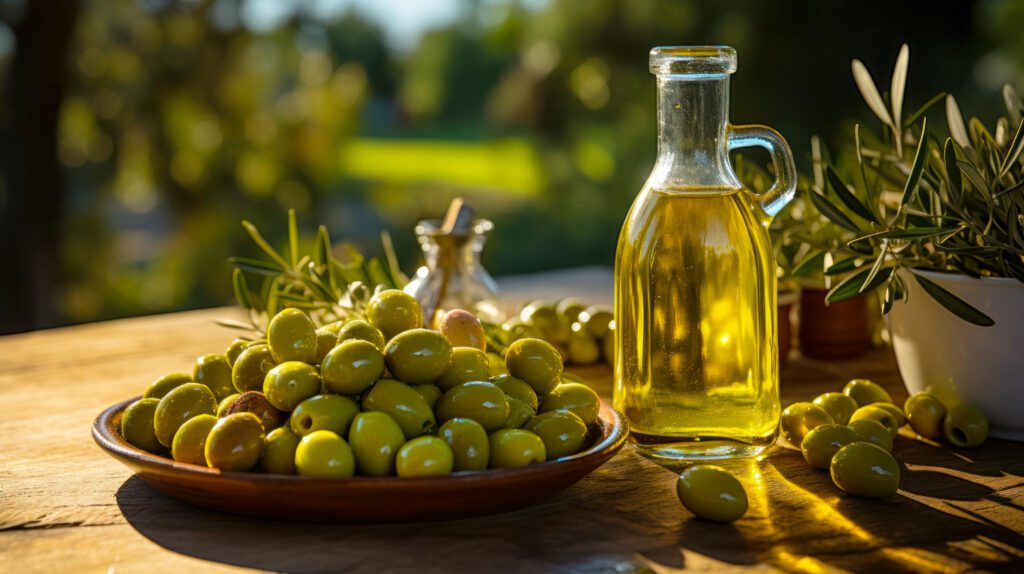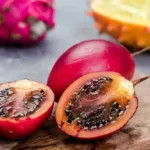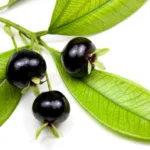Introduction
Olive, revered as the “liquid gold” in ancient civilizations, has transcended centuries as a symbol of peace, prosperity, and vitality. Beyond its cultural significance, this humble fruit of the Olea europaea tree holds a treasure trove of health benefits and versatile uses that have been celebrated since antiquity. Let’s delve into the myriad advantages and applications of this extraordinary gift of nature.

Uses and Benefits of Olive
- The Nutritional Marvel of Olives:
Olives boast an impressive nutritional profile, rich in monounsaturated fats, particularly oleic acid, which is linked to numerous health benefits, including heart health and reduced inflammation. Additionally, they are abundant in antioxidants like vitamin E and polyphenols, which combat oxidative stress and protect against chronic diseases. - Heart Health Guardian:
Incorporating olives into your diet can significantly promote heart health. The monounsaturated fats in olives help lower LDL cholesterol levels, thus reducing the risk of cardiovascular diseases. Moreover, the potent antioxidants found in olives prevent the oxidation of cholesterol, a key factor in the development of atherosclerosis. - Antioxidant Powerhouse:
Olives are packed with antioxidants that neutralize harmful free radicals in the body, thereby thwarting oxidative damage and inflammation. These antioxidants not only bolster cellular defense mechanisms but also play a pivotal role in combating various diseases, including cancer and neurodegenerative disorders. - Weight Management Ally:
Contrary to popular belief, olives can be beneficial for weight management when consumed in moderation. The healthy fats in olives promote satiety, keeping hunger pangs at bay and aiding in portion control. Additionally, their low calorie and high fiber content make them a nutritious snack option for those striving to maintain a healthy weight. - Digestive Support:
Olives contain fiber, which promotes digestive health by facilitating bowel movements and preventing constipation. Furthermore, the abundance of monounsaturated fats in olives aids in the absorption of essential nutrients, ensuring optimal nutrient utilization by the body.

- Skin and Hair Elixir:
The antioxidant-rich properties of olives extend to skincare, offering protection against premature aging, UV damage, and environmental pollutants. Whether consumed or applied topically, olives hydrate the skin, leaving it supple and radiant. Moreover, olive oil serves as a natural moisturizer and conditioner for hair, promoting luster and vitality. - Culinary Delights:
Olives are a culinary delight, lending their distinctive flavor and texture to a myriad of dishes. Whether sliced and tossed in salads, stuffed with cheese, or pressed into oil, olives elevate the taste profile of countless recipes. Their versatility extends beyond savory dishes, as olives add a unique twist to bread, pizza, and even desserts. - Mediterranean Diet Staple:
The Mediterranean diet, renowned for its health-promoting properties, features olives as a cornerstone ingredient. Embracing this dietary pattern, characterized by an abundance of fruits, vegetables, whole grains, and healthy fats like olive oil, has been associated with reduced risk of chronic diseases and increased longevity. - Sustainable Agriculture:
Cultivating olives promotes sustainable agricultural practices, as olive trees are resilient to drought and thrive in arid climates with minimal irrigation. Additionally, olives play a vital role in preserving soil health and preventing erosion, making them an environmentally friendly crop choice. - Cultural and Historical Significance:
Beyond their nutritional and practical benefits, olives hold profound cultural and historical significance. From ancient Greek mythology to religious ceremonies, olives have been revered as symbols of peace, wisdom, and abundance. Today, the olive tree stands as a timeless emblem of resilience and vitality, embodying the enduring bond between humanity and nature.
Conclusion
In essence, the humble olive transcends its status as a mere culinary ingredient to emerge as a nutritional powerhouse and versatile ally in promoting health and well-being. Whether enjoyed as a savory snack, incorporated into skincare routines, or savored in traditional Mediterranean dishes, the benefits and uses of olives are as abundant as the golden fruit itself. Embracing olives as a dietary staple not only enriches our culinary experiences but also nourishes our bodies and souls, echoing the timeless wisdom of nature’s bounty.







6 thoughts on “Benefits and Uses of Olive: A Nutritional Powerhouse”